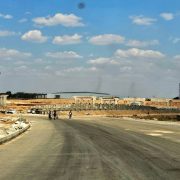Yesterday the world commemorated Workers’ Day or May Day with parades, speeches, and promises of better wages. However, Zimbabwe’s reality is a grotesque mockery of what this day should represent. The first of May is a day meant to honour the sweat, toil, and sacrifice of workers across the globe and give them a well-deserved break. But the streets of Harare were still bustling with vendors crouch on pavements, store owners kept their doors open, and the police continued their relentless harassment of those just trying to feed their families.
By Gamuchirai Mapako
Who do we celebrate on Workers’ day in Zimbabwe?
Without doubt the attention goes to the informal sector which constitutes a significant portion of the country’s workforce and is thriving out of necessity rather than choice. These individuals, who toil daily to make ends meet, are a significant portion of the true embodiment of the Zimbabwean worker.
In theory, May Day is for the workers, the backbone of the economy. But in Zimbabwe, who are the workers? The civil servants who earn salaries that vanish the moment they hit the bank account? The factory workers whose industries collapsed decades ago? The teachers and nurses who have been reduced to beggars, surviving on side hustles because their professions no longer pay a living wage?
If you walk through any Zimbabwean city, and you will see them, the vendors, the new face of labour in this country and a stroll around the city on the 1st of May revealed that instead of honouring them, the state criminalizes their existence. The police, themselves victims of a broken system, have turned into predators, extorting and confiscating goods from these individuals. Yet these are the people who have kept Zimbabwe moving while the formal economy crumbled.
Why? Because those in power have no answers. They cannot create jobs, they cannot stabilize the economy, so they turn their frustration on the weakest the street vendors. Every day is a battle for survival, and Workers’ Day is no exception. While ministers and officials make empty speeches about “honouring workers,” the vendors are still out there, ducking municipal police, counting their losses, wondering if today will be the day their entire stock is seized.
So, who do we honour on this Workers’ Day in Zimbabwe? We honour the vendors, the street traders, and the informal sector workers.
We also honour the formal sector workers who are struggling to keep their heads above water. We honour the lecturers and other professionals who are fighting for better working conditions.
For those still clinging to formal employment, Workers’ Day was just another reminder of how far they have fallen. Salaries are a joke, a university lecturer earns less than a street vendor. Nurses and teachers survive on donations and side hustles. Factories that once employed thousands are now ghost buildings, their machinery stripped for scrap.
And yet, today, the University of Zimbabwe lecturers are protesting because even the educated elite can no longer survive on their wages. If the professors are struggling, what hope is there for the ordinary worker?
The few still in the formal sector are trapped too afraid to leave, too exhausted to fight. They show up to jobs that no longer pay enough, clinging to the illusion of stability while inflation eats away their earnings. Workers’ Day for them was not a celebration, but a funeral for the dreams they once had.
The most tragic thing about Zimbabwe’s Workers’ Day is that it exposes how this nation has turned into a cannibalistic society everyone preying on those just slightly weaker.
The police, underpaid and demoralized, take out their frustrations on vendors. The civil servant, robbed of a living wage, demands bribes to process simple documents. The factory owner, strangled by taxes and power cuts, underpays his workers.
It is a vicious cycle of collective punishment, where everyone is both victim and perpetrator.







Comments